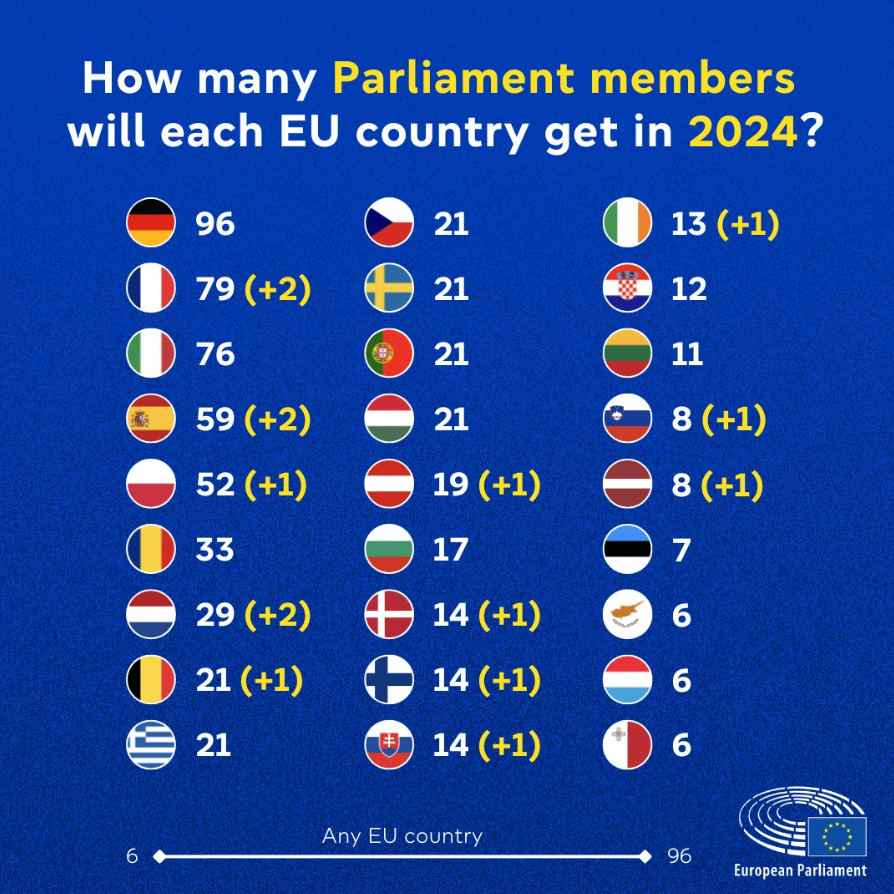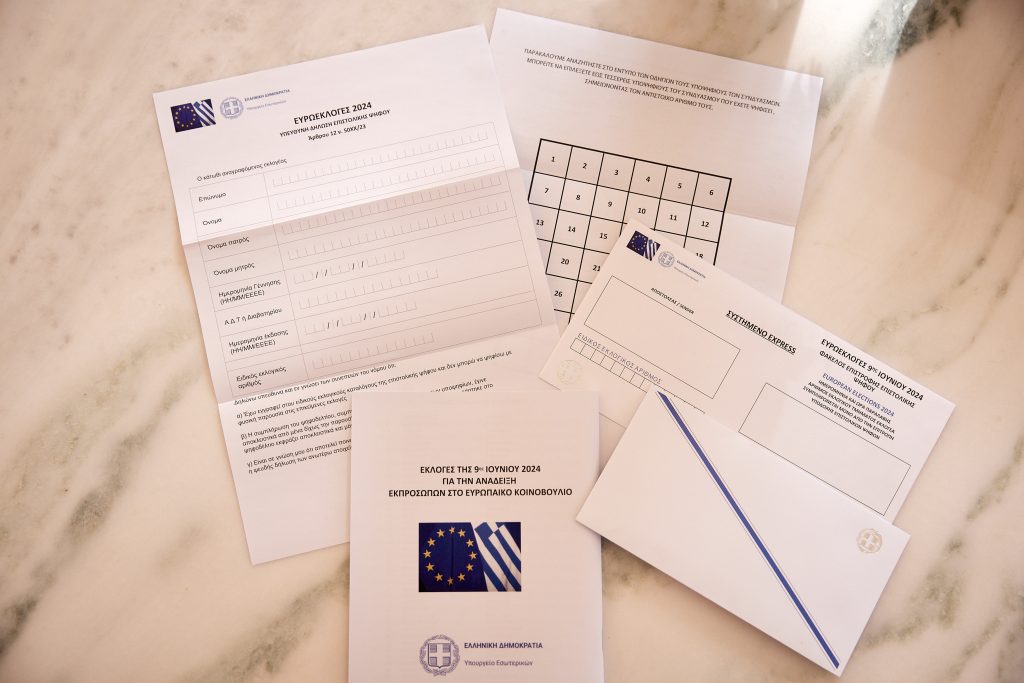With less than three months to go to the 10th European Parliament (EP) elections, the Parliament is concerned with one issue above all others: getting the message out to European citizens that they need to vote–and vote wisely–this June.
For Greece, which is one of only four European countries where voting is compulsory, a high turnout rate is expected on June 9th. Still, to make it even easier, Greece will also be allowing its voters, who must be aged 17 or older, to vote by post this year, as long as they register online by April 29th.
“It is true we’re not so worried about whether Greeks will go to the polls. What we are anxious about is how they’ll vote. The rise of the Far Right is making every country in Europe sweat, and in Greece we have a persistent problem: citizens don’t really understand how the decisions made in Strasbourg directly impact their lives,” a Greek press officer told To Vima.
And considering the number of scandals during the EP’s current term which have centered on Greece, from Qatargate to the most recent allegations concerning personal data violations by a New Democracy MEP, voters would be wise to choose carefully.
Greece’s candidates will all be announced at least three weeks before election day, and will be vying for 21 of the 720 seats in the EP. Recently, New Democracy announced its list of candidates, which includes many from the 9th European Parliament session.
The winners of this year’s elections will serve as MEPs for five years, working on legislative committees and voting in the Parliament’s 12 annual sessions in Strasbourg.
Why MEPs Matter, and the Most Important Roles
Ambassador George Kremlis, a seasoned Commission official and technocrat, explains that citizens need to understand that legislation passed by the EP directly impacts their lives.
“European countries have to adopt the legislation of the EP and implement the provisions of Directives. They can exercise a limited margin of discretion, but only to the extent that this is allowed by the actual text of the directive,” said the Ambassador.
And the legislative process is highly technical. To be effective, MEPs need in-depth knowledge of the European law-making mechanism, specialized sectoral knowledge related to the legislation itself, and superlative language skills in both English and French.
Many citizens see the translation capacity in televised EP plenary sessions and do not realize that legislation is discussed in committees in Brussels, without the presence of translators.
“And the committee presidents have the most important role. They decide on the rapporteurs, have the right of initiative, and can submit draft regulation.”
Greece boasted 22 Vice Presidents last term, “but it doesn’t matter so much if someone is a VP, because it is primarily an honorary position,” explained Kremlis.

Are Greece’s MEPs Effective, and How Do They Compare?
So the big question ahead of elections is whether or not Greece put forth adequately skilled and effective MEPs last term.
A recent interview given by Antonis Papakostas, who worked at the European Commission on the famous Eurobarometer report, sheds some light on Greece’s MEPs who, according to EP announcements, are paid around 7,800 euros net per month.
“There are 21 committees working on legislation on topics from different sectors, like agriculture and external relations,” explains Papakostas. Fifteen of Greece’s 21 MEPs participate in committees, “but Greece doesn’t have any members on the agricultural committee,” which has proven to be a critical issue across the EU.
This fact highlights how important it is for Greece to have MEPs with specialized knowledge that is aligned with topics of national importance, who will also participate actively in the legislating process to ensure the country’s priorities are represented.
MEPs’ affiliations with political groups within the EP are also very important, said Papakostas. This is because “MEPs are proposed for committees by the political groups. At this moment, Greece has six MEPs who are independent,” not to mention one member of Golden Dawn who is in prison.
“These MEPs can participate in committees, but they do not have an impact on them, on Vice Presidents, nor on the agenda, because independents are isolated from the process.”
Papakostas also elaborated that the recently released “BWC Influence Index”, which ranks the top 100 European parliamentarians, shows that there are no Greek MEPs in the top 100.
Moreover, “Portugal, which is similar to Greece in many ways, is in third place for effectiveness compared to its size. But Greece is very low down on the list, in 24th place out of the 27 member states.”
Taking a closer look at the BWC index itself and the actual location of Greek MEPs in the complete list, we find that MEP Maria Spyraki was closest to making the cut, coming in at 112 and was by far the top-ranking Greek on BWC’s list. Meanwhile, three of Greece’s MEPs were ranked 698, 699, and 700 out of 705 MEPs.
Meanwhile, EU Matrix’s Influence Ranking by country reiterates that Greece’s MEPs are in the lower ranks when it comes to influence. However, it notes that some MEPs are “punching above their weight” when one takes a closer look at specific policy areas.
It notes that Maria Spyraki is in the top 20 most influential MEPs on environment, while Elena Kountoura is in the top 20 most influential MEPs on transport.
Looking Ahead
EU Matrix’s ranking makes forward-looking statements and predicts that Greece is likely to pick up more MEPs in the highly influential EPP and S&D parties after June’s elections, which will work out well for the country.
A greater number of MEPs in the EP’s top political groups means increased chances of Greek MEPs accessing important roles at the EP. “With governing party New Democracy polling high in latest surveys, their center-right MEPs will try to leverage their strong position in the EPP to gain more access to reports and leadership positions,” explains EU Matrix.
While the BWC and EU Matrix indexes are not the only rankings of MEPs, nor are they the be-all and end-all of assessing MEPs, they do give a sense of the general performance of Greece’s MEPs and are important considerations for voters as they head to the polls on June 9th.






